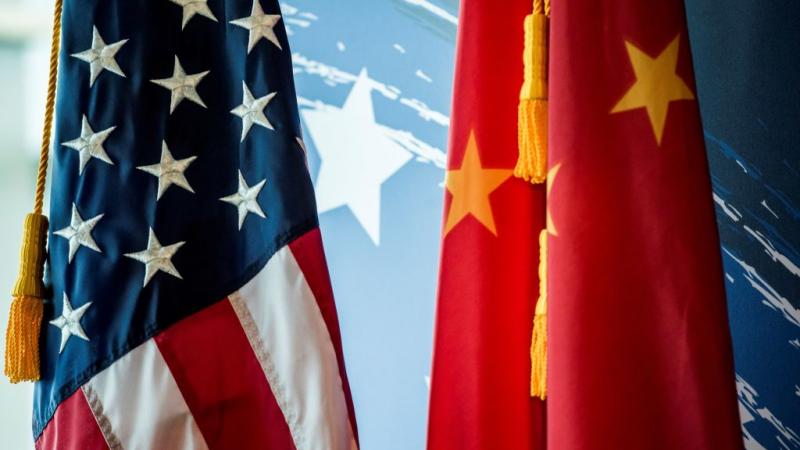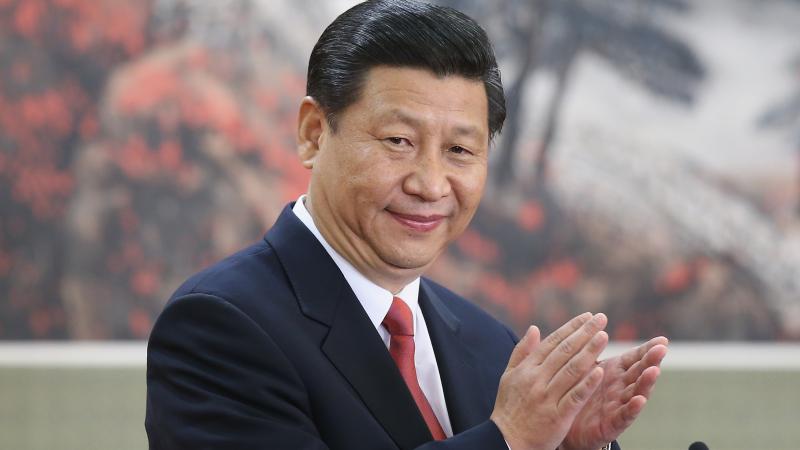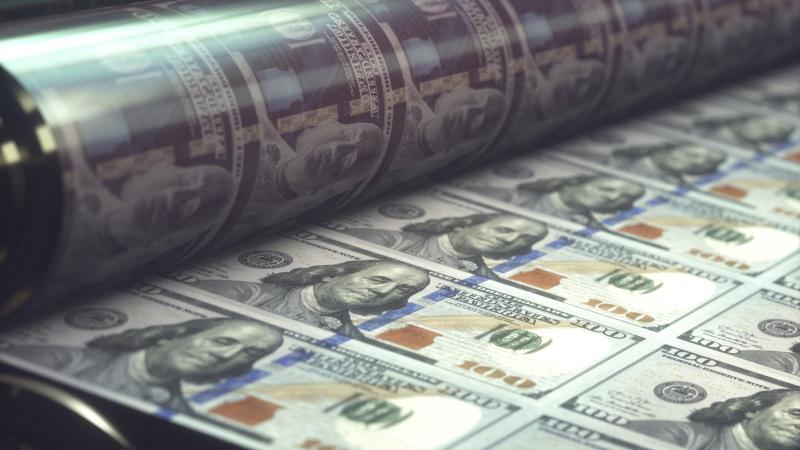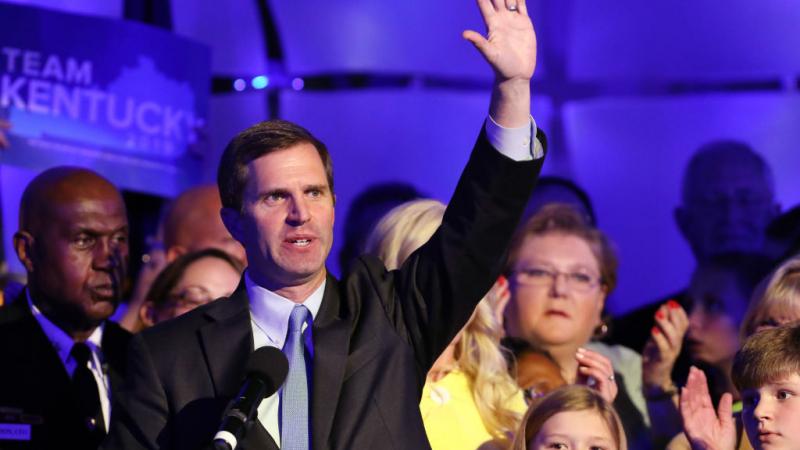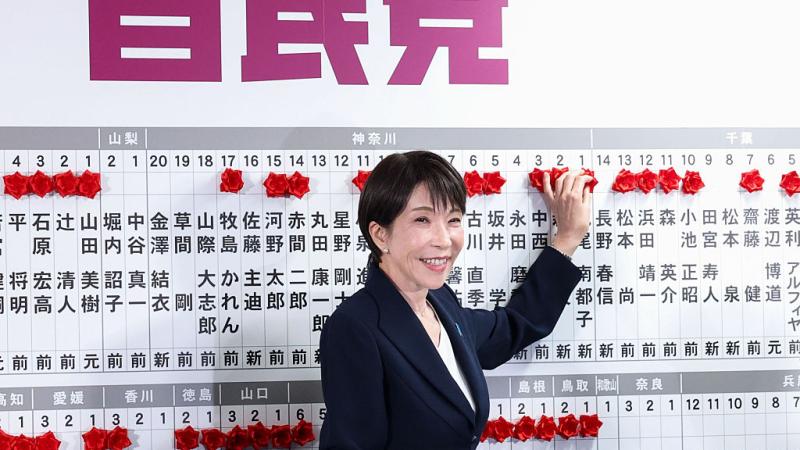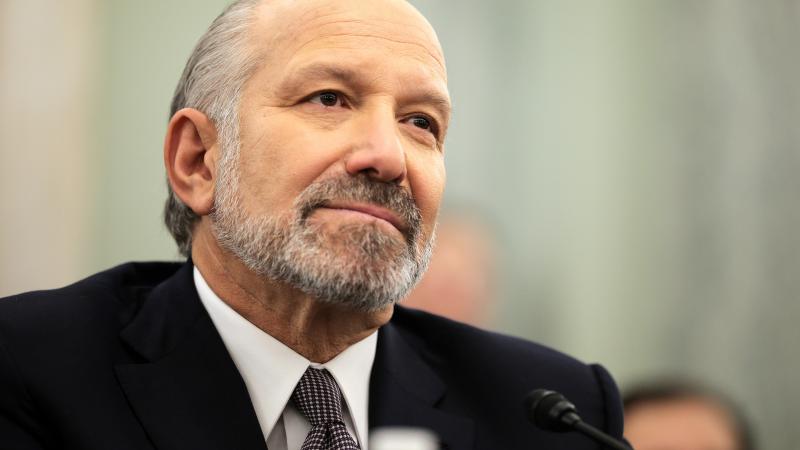Rubio aims renewed focus on China threat, signals U.S. foreign policy shift in confirmation hearing
Rubio tips the second Trump administration's hand on trying to take a tough approach to the Chinese Communist Party and China's financial empire.
In his bid to be confirmed as Trump’s Secretary of State, Marco Rubio defined threats posed by Communist China from critical minerals to important medications, labeling the country the “most potent and dangerous” threat the U.S. has ever faced.
Rubio’s hearing comes at a time when lawmakers and officials are growing increasingly concerned with China’s aggressive actions and economic might, such as the recent widespread hack of U.S. telecommunications networks.
The nominee—a one-time presidential candidate, son of Cuban refugees and current senator—blamed a post-Cold War, bipartisan consensus for strengthening the United States’ enemies. By abandoning a foreign policy focused on national interest, American leaders were allowing other countries like China to exploit the new “global order” established in the wake of World War II. He promised instead that the second Trump State Department would shift focus and put Americans and the country’s interests first.
“We welcomed the Chinese Communist Party into the global order, and they took advantage of all its benefits, and they ignored all its obligations and responsibilities,” Rubio said in his opening statement. “Instead, they have repressed, and lied, and cheated, and hacked, and stolen their way to global superpower status, and they have done so at our expense and at the expense of their own country.”
Rubio outlined the multifaceted threat from China, which includes its growing dominance in vital global industries and emerging technologies which pose a threat to the prosperity and freedom of the United States.
“If we stay on the road we are on right now—in less than 10 years, virtually everything that matters to us in life will depend on whether China allows us to have it or not,” Rubio said. “Everything from blood pressure medicine to what movies we get to watch, and everything in between. They dominate the critical mineral industry. Even those who want more EVs—those batteries depend on China.”
“If we don't change course - we will live in a world where much of what matters on a daily basis, from our security to our health - will be dependent on whether the Chinese allow us to have it or not,” he continued.
China a “revisionist power”
The classification of China as a major economic and security threat—indeed the United States’ greatest rival—first began during the first Trump administration with the 2017 National Security Strategy, which characterized China as a “revisionist power” seeking to “displace the United States.” This strategy marked a major departure from the bipartisan consensus that engagement with China would bring liberalization, greater cooperation, and ultimately secure peace.
Since the first Trump administration, however, China has moved more aggressively to challenge the United States and its growing in military, technological, and economic power.
“The Communist Party of China—which leads the PRC—is the most potent and dangerous near-peer adversary this nation has ever confronted. They have elements the Soviet Union never possessed,” Rubio reiterated in response to questioning.
On Monday, China announced that its trade surplus—the balance of total exports to imports—reached the highest level ever at $1 trillion in 2024. This signifies a dominant export sector on a scale not seen since the United States took on a similar role in the aftermath of World War II.
China and market control
The growing scale of China’s export sector, coupled with its manipulation of its currency, first spurred Trump to criticize the nation’s trade practices and impose tariffs, which sparked a trade war during his first term. But now, after a downturn during COVID-19, Chinese exports have recovered.
The scale of China’s export economy also offers it many geopolitical advantages. A country that produces so many vital goods on its home soil is generally more resistant to sanctions and the surplus creates more factory jobs for its citizens.
Rubio, echoing past criticisms from Trump, believes China has exploited the Western world’s generosity to corner the market in many sectors vital to American security, like rare earth metals and medicine.
The multifaceted threat
The United States’ over reliance on Chinese manufactured medicines and drugs was laid bare during the COVID-19 epidemic. At the time, Commerce Department analysts estimated that China produced 70% of the acetaminophen used in the United States. China also has growing export markets for solar panels and recently surpassed Japan, South Korea, Mexico, and Germany in exporting cars.
U.S. lawmakers and officials have also warned of China as a significant cybersecurity threat, which has grown in capability and scope. Recently, outgoing FBI Director Christopher Wray warned about the expansive threat to U.S. networks, companies, and critical infrastructure.
“China's cyber program is by far and away the world's largest-- bigger than that of every major nation combined and has stolen more of Americans' personal and corporate data than that of every nation, big or small, combined,” Wray said in an appearance on CBS' "60 Minutes".
“But even beyond the cyber theft. There's another part of the Chinese cyber threat that I think has not gotten the attention publicly that it I think desperately deserves. And that is Chinese government's pre-positioning on American civilian critical infrastructure. To lie in wait on those networks to be in a position to wreak havoc and can inflict real-world harm at a time and place of their choosing,” he warned.
He said the Chinese had the prepositioned capability to target the transportation, energy and telecommunications sectors at will.
In late 2023, a Chinese government-linked hacking group called Salt Typhoon carried out a widespread intrusion into the U.S. telecommunications network, affecting about 80 providers including AT&T, Verizon, and T-Mobile. A senior FBI official warned in December that the government doesn’t know with certainty that the Chinese hackers had been expelled from U.S. networks.
His record is likely to be received as a complement to Trump’s promises on the campaign trail to combat China economically.
Trump has considered multiple options during the campaign to undercut Chinese leverage and damage its economy. For example, he has proposed a 60% flat tariff on all Chinese imports to the United States. Trump has also proposed revoking China’s Most Favored Nation trade status, which under the World Trade Organization agreements, requires countries to offer the same terms to all trading partners.
Other Trump advisors and nominees, like National Security Advisor-designee Rep. Mike Waltz, have also signaled the administration will take a tough approach to the Chinese Communist Party, focusing on shifting military power to the Pacific region and undercutting Beijing’s economic might.
The Facts Inside Our Reporter's Notebook
Links
- Rubio said in his opening statement
- the 2017 National Security Strategy
- reached the highest level ever
- over reliance on Chinese manufactured medicines
- Wray said in an appearance on 60 Minutes
- widespread instruction into the U.S. telecommunications network
- 60% flat tariff
- proposed revoking Chinaâs Most Favored Nation
- signaled the administration will take a tough approach

